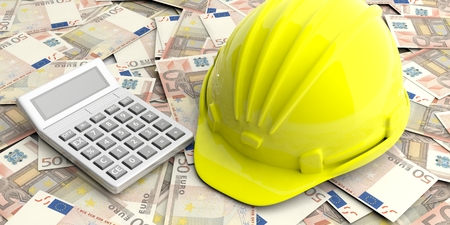
I write this blog in the first days of September. The weather is cooler than usual, and some leaves are beginning to change colors. However, nothing says Fall more than the crowd of middle schoolers marching to school past our building. Ready or not, it’s time to learn. So, shall we start with a little math problem of our own?
Here it is. Mom didn’t pay Little Bobbie enough for his chores, so he decided to become a real estate investor. Little Bobbie is quite a hustler, and he found a property for $200,000. He looked inside and felt that he could make it look better for $40,000. In fact, he could make it look so good that after all these repairs, he could sell the house for $300,000. How much in profits would Little Bobbie make?
Any middle schooler will tell you that little entrepreneurial Bobbie will make a respectable profit of 60K. After all, the math is straightforward: $300,000 – $200,000 – $40,000 = $60,000. Johnny’s rich now, and Mom must find someone else to do her chores.
Real estate investing is not rocket science. Still, things are a bit more complex here than middle school math. What little Bobbie doesn’t know is that, in addition to his purchase price and renovation costs, he will incur other expenses that will cut into his profits.
We want all our investors to succeed. Success in real estate flipping means realizing a profit that makes your efforts worthwhile to you financially. It’s a highly personal number. Some might be content with making $20K per transaction, while others might need to double that amount to justify their time. This is why we created our hard money calculator: to ensure that our investors – especially those new to the business – are aware of other costs and do take them into consideration when calculating their potential profits.
As a real estate investor, you will encounter three types of costs. They are purchasing costs, carrying costs, and selling costs. Our hard money calculator is organized around them. Let’s tackle purchasing costs first.
Hard Money Calculator: Understanding Purchasing Costs
As the name suggests, purchasing costs are the costs associated with the purchase of your home. In our hard money calculator, we show it as a section independent of the purchase price. Your purchase costs will include title company fees, title insurance, and transfer and recordation taxes. In Bobbie’s case, such fees might range between two and four thousand dollars. If you are buying your property from an auction, your purchasing costs will include an auctioneer’s fees as well. In addition, they will include fees associated with getting a loan to acquire a property.
Our hard money calculator lists another category of costs under purchasing costs: property taxes and property insurance. Though technically they are not considered purchasing costs, the title companies are required to collect several months of them in advance, so we put them in that section.
Hard Money Calculator: Understanding Carrying Costs.
Carrying costs, sometimes referred to as holding costs, are the costs you incur as an owner of the property. These costs are independent of your rehab costs and will occur regardless of the scale of your renovation. The longer you own the property, the higher your carrying costs will be.
The primary example of carrying costs are property taxes and property’s insurance. Because some months of taxes and insurance are collected at the time of the closing, we include them under the purchasing costs. However, our hard money calculator will automatically adjust their amount according to the time period you plan to own the property.
Another category of carrying costs is the interest you are paying on your loan. The longer you hold the loan, the more interest you pay the lender. You can see how the holding period affects your profits by changing the number of months in the loan term section of our hard money calculator.
Hard Money Calculator: Selling Costs
The last section of our hard money calculator covers the selling costs of your flip. As a seller, you will be required to pay commissions to your listing agent as well as to the buyer’s agent. In our example, it can cost little Bobbie upwards of $12,000 to sell his home. Sellers and buyers typically split the transfer and recordation fees, so those fees will appear twice in our hard money calculator. First, they will be charged to you as a part of your buying expenses and then again as a part of your selling costs.
Another item that should be considered a part of selling costs is any buyer’s help you might have to provide. The fact is that most of the home sales in the DC area include buyer’s closing costs help. The chance are you might need to budget between 1- 3% of your sales price to accommodate your buyer.
Don’t get me wrong: home flipping is a great business that allows our borrowers to build wealth and supplement their income year after year and transaction after transaction. They come back to us over and over because it can be such a profitable business. However, for first-time real estate investors, many of the expenses associated might not be apparent until it’s time to pay them. This is why we created our hard money calculator – to help you avoid being seduced by deceivingly simple math. Because – truth to be told – little Bobbie might discover that his particular deal is not as profitable as he thinks. And until a better deal comes along, doing chores for Mom might be a better option.
 New Funding Resources
New Funding Resources 





Leave a Reply